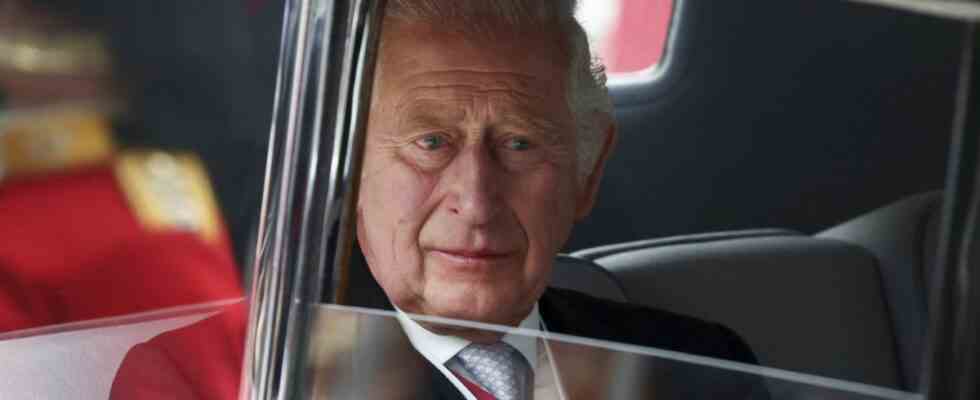Last week didn’t quite go as planned for Prince Charles. Actually, the coverage should probably be determined by a heartwarming story about the first meeting of the British heir to the throne with Charles’ granddaughter Lilibet and her parents Harry and Meghan during the celebrations for the platinum throne jubilee of Queen Elizabeth II. The relationship between father and son was last seen as broken. But instead of the picture with the reports about this “emotional” encounter (Vanity Fair) the PR machine at Clarence House, the residence of the Prince of Wales, was forced to do damage control on two fronts.
On the one hand, a cash donation from Qatar had to be justified, which the prince, according to the Sunday Times reportedly received in 2015 during meetings with Sheikh Hamad bin Jassim bin Jaber al-Thani, the former Prime Minister of Qatar. According to the report, it was a total of three million euros, which were handed over to the heir to the throne once in a suitcase, another time in a travel bag and in tote bags from the luxury department store Fortnum & Mason.
The money was “immediately passed on to one of the Prince’s charities,” a Clarence House spokesman said. And indeed it was paid into the accounts of the Prince of Wales’s Charitable Fund. But even though it’s loud Sunday Times In fact, while there is no indication that the payments were illegal, the process reinforced the impression that there was a “cash for access” policy, making it easier for wealthy lenders to gain access to the prince.
The revelations of the Guardians, who reported the Prince used a special right in 1992 to protect his Cornish lands from a potential sale to the tenants. At the time, Charles interceded with various ministers, including Prime Minister John Major, to get him to modify a bill on leaseholds. Otherwise, if ratified, it would have made it easier for Charles’ tenants in Newton St Loe, a small Somerset village, to buy the buildings from him.
It will probably take a few more stories from grandchildren to calm things down for the Prince of Wales
Charles used the constitutional means of the so-called “Queen’s consent”. Although in a constitutional monarchy Parliament passes legislation, the Queen must give her prior consent to bills that directly affect her personal interests – often inheritance and financial matters. In the unwritten British Constitution, this is a customary right, actually a formality. But not only the Queen, also the Prince of Wales has to agree. And Charles apparently threatened to refuse this consent, at least indirectly.
Letters and notes from the responsible ministries from September and October 1992 make it clear Guardians revealed that Charles has a “strong personal interest” in Newton St. Loe and insists that his properties there be exempted from the bill. The lobbying was successful because, according to an internal letter cited by the newspaper, the government wanted to avoid a dispute with Charles.
In fact, according to a spokeswoman for the prince, the land holdings of the Duchy of Cornwall are exempt from the legislative reform. However, Charles “agreed to act as if bound by it” except for a “very small number of designated areas” – including Newton St Loe. “As you can imagine,” the spokeswoman said, “we’re not talking about individual leases.” It may take a few more heartwarming grandchild stories to calm the Prince of Wales’ hearts after these revelations.

